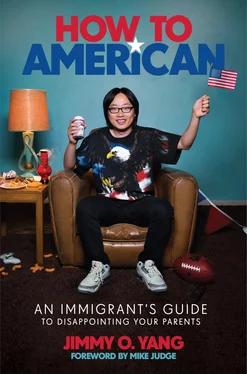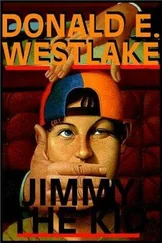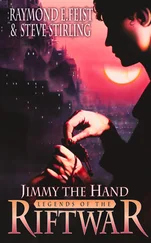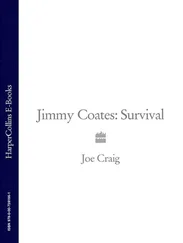Going into Mexico from the United States was a wide-open revolving door with almost no security. Crossing the border from Mexico to the United States was quite the opposite. The border crossing point was a gray windowless cement tunnel with metal barriers. Instead of wide-open revolving doors, there were border patrol agents with guards carrying assault rifles standing behind them. This was no place to fuck around. I was a bit worried because we were all pretty drunk and John smelled like pee. We tried blinking really hard a few times to sober ourselves up, a drunkard’s futile attempt at sobriety. Ian, our trusted Tijuana guru, explained to me: “Dude, don’t worry, it’s super easy. I just show them my driver’s license and tell them I’m an American citizen, they let me right in every time. No questions asked.” Ian went up to the border patrol. And he was right; he got right through. Then John stumbled up to the border patrol counter, and he went through in a breeze. If they let John through, I was pretty sure I was in good shape. The stern border patrol lady signaled me over, and I promptly handed her my California driver’s license. She scanned my license.
“Are you an American citizen?”
“Yes.”
I replied exactly how Ian had told me. Except I was too drunk to remember one minor detail: I wasn’t an American citizen. Unlike Ian, I was a permanent resident with a green card. Oops.
The agent typed something into her computer and she stopped. She studied me for a long beat; then without saying a word, she got up and whispered something to the armed guard next to her. The guard looked square into my soul and marched two steps towards me. “Come with me, sir.”
The man with the assault rifle led me down a long empty concrete tunnel to a small empty room. It had a wooden desk, two metal chairs and a blinding LED light on the ceiling. He stood in one corner with both of his hands holding the assault rifle. He said, “Have a seat.” I sat down on the cold metal folding chair in front of a heavy wooden desk. I sat there for thirty minutes and the guard never took his eyes off of me. Finally, the border agent who had checked my ID entered the room. She shut the door behind her and sat down across from me. She cut to the chase:
“So why did you lie?”
“I… I don’t…” I was so nervous I could barely form a sentence.
“Why did you lie about being an American citizen?”
“I’m sorry, that’s what my friend told me to say. I’m so sorry.”
“Your friend told you to lie?”
“No, but he said he just shows his driver’s license and says he’s an American citizen, and he told me to do the same.”
“Well, is he an American citizen?”
“Yes.”
“Well, are you?”
“No.”
She looked over to the guard and had no further questions. I pleaded:
“I’m so sorry. I didn’t mean to lie. I just didn’t think about it. I was going out in Tijuana and I was a bit drunk. I just did what my friend said he does when he crosses the border. I’m so sorry, ma’am. I’m just a stupid college student.”
She didn’t respond; she got up and exited the room. Leaving me alone once again with the armed guard. This time, I was sure I was going to get executed by his assault rifle.
Another thirty minutes passed by, and surprisingly, I was still alive. I had lost all hope of ever seeing any of my family and friends in the United States. I was contemplating my last words. I thought about where I’d live when I got deported, where I’d go to school and how I would survive on my own in Hong Kong, China or wherever they were going to send me. Maybe they were calling me an Uber to Guantanamo Bay. But mostly, I thought about how disappointed my parents would be in their idiot son, who got drunk in Tijuana and lied to a border patrol agent. Then the door swung open and the border patrol lady came in again, holding a stack of paperwork. This time, she was accompanied by two other border patrol agents: a Latino man and a middle-aged Asian man. I was ready for them to seal my fate as all three of them looked at me with utter disappointment. The lady put the paperwork in front of me and said to me:
“You are lucky this time. I am going to put down that you forgot your green card, and we won’t charge you with anything or put anything on your record.”
The gods took mercy on me; I lived to American another day.
Then the Latino agent said, “There is a fee for not having your green card at the border. Pay that and you can go.”
I looked down at the paperwork; the fee was $360, basically my entire college checking account. Hey, can you guys just deport me instead? But I had sobered up enough to know that this was one of the best deals I’d ever get in my life. I gladly paid the fee and thanked the lady for her mercy. As the guard ushered me out of the room, the Asian border patrol officer said one last thing to me that I’ll never forget:
“Don’t do that again, or we’ll send you back to where you came from.”
Those words shook me to my bones. I felt like the lost thirteen-year-old foreigner again. All the Pledge of Allegiances, American football and BET Rap City didn’t change anything; I was still just a foreigner living in America. And worst of all, this came from an Asian American person. I was angry. I was angry that an Asian brother sold me out. I was angry that he thought he was better than me. I was angry that no matter how hard I tried, I was still a foreigner. I couldn’t come up with a response that wouldn’t send me to prison. I just took the comment and silently walked out. I was still nothing more than an immigrant who could be deported at any time.
A YOUNG STONER LIVING IN A RETIREMENT COMMUNITY
I was depressed when I went home that summer after freshman year. I was back at square one of my immigrant journey, and I had learned nothing in school other than how to roll a joint. I stayed with my dad, who had moved into a retirement community in Monterey Park filled with old Chinese people. I was a longhaired college boy living in a sixty-five-and-older apartment complex. People looked at me like I was some kind of alien invading their morning tai chi class. I tried being friendly with our neighbors but they weren’t having it. I greeted our eighty-year-old Chinese neighbor with a warm smile. “Hi, how are you?” No response; he just stared at me. I tried again in Mandarin. “Ni hao.” Still no response; he judgmentally looked me up and down and walked away. It was going to be a bleak summer.
There was a community bench right outside of my bedroom. Every day at 7:00 a.m., I would wake up to old ladies chatting in Mandarin. An old lady said to her friend:
“When did you stop getting your period?”
“I was thirty-nine, it was early,” her friend responded in a matter-of-fact manner.
“I stopped getting mine when I was fifty-four.”
And that was the day I learned about menopause.
I didn’t have a car and all my friends from Beverly Hills High lived twenty miles away. I went from the general population in college to solitary confinement in a Chinese retirement community. I felt like I was trapped on a leper island quarantined from the world. I would go down to the park across from the apartment and sit alone on a bench just to get away from the grandmas talking about their periods. One day, as if it was a sign from God, a Latino kid riding a BMX bicycle stopped by the bench I was sitting on. “Yo, you smoke weed?” he asked me. My long hair signaled for weed dealers like the bat signal called for Batman. I said, “Yeah. You got some?” And he pulled out a joint. “You smoke chewy?” I had no idea what chewy meant, but any weed would do at this point. “Sure.” And we lit up the joint right there in the park. After a couple of hits, I started coughing like a real amateur.
Читать дальше











